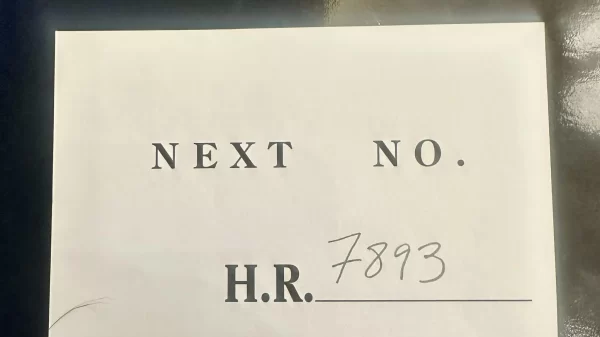By Samuel Mattison
Alabama Political Reporter
State Sen. Gerald Dial, R-Lineville, is calling on Alabama to develop a water plan for emergency situations.
“The fact that we haven’t been able to put a plan in place is an immense disservice to the people of Alabama,” Dial said. “As often as we experience droughts, we need a plan in place now more than ever.”
Dial, who is running for the commissioner of agriculture and industries, called on the Alabama Department of Economic and Community Affairs to develop the plan. He sponsored legislation in the 1990s requiring an office within the department to develop a water plan.
The legislation came after Alabama experienced one of the worst droughts in the state’s history in the late 1980s according to the U.S. Geological Service’s report form 1989.
The Office of Water Resources was created in the 90s and has various responsibilities including water management. Since that time, they haven’t drafted a plan to deal with drought situations in Alabama.
Former Alabama Gov. Robert Bentley put together a committee in 2011 to address the issue named the Alabama Water Agencies Working Group. The committee was broken up into several subcommittees each focused on drafting a part of a water plan.
Gov. Kay Ivey disbanded the organization on Nov. 1 calling for the responsibilities of the office to fall upon the Office of Water Resources. In her letter to Chairman Berry Tew, Ivey said she would rely on past reports by the committee to draft new water plans.
The governor’s decision came after a drought that consumed nearly all of Alabama in 2016 causing most areas to go into drought like conditions. Rivers, lakes and streams around the state began to dry up in the intense heat as rainfall dropped during the fall and winter of 2016.
A recent joint report among federal environmental agencies found that Western Alabama is still recovering from the effects of the drought.
Ivey’s decision to disband the committee was met with swift condemnation by the Alabama Rivers Alliance and the Southern Environmental Center.
Sarah Stokes, a staff attorney for the Southern Environmental Law Center, blasted the decision in a press release and said the decision has set Alabama’s progress on establishing a compressive water plan back.
“In her letter to the [Alabama Water Agencies Working Group] chair, the Governor states she will rely on the current policies, which have been consistently ineffective in the past,” Stokes said in a statement. “These policies do not ensure any protection during droughts, nor do they ensure that statewide water users are using our limited resources efficiently.”
Cindy Lowry, executive director of the Alabama Rivers Alliance, had similar complaints.
“We don’t wait to plan for a hurricane or a tornado until it happens, so why wait to plan for water shortage until there is a crisis?” Lowry said in a statement. “With this move, the Governor is ignoring years of work and millions of taxpayer dollars spent by all of the agencies governing Alabama’s water resources. Rather than kicking the can down the road yet again, we need leadership that prioritizes water stewardship and protection.”
Despite the disagreements about state policies, almost one thing is certain: a drought will occur again.
States at Risk, an organization that rates states on their preparedness for weather events, said Alabama’s intense summer droughts will double by 2050. The report stressed that Alabama wasn’t doing enough to address future concerns and gave the state a C- grade for drought preparedness.
“While the state is taking strong action to prepare for the risks it faces today, it is doing almost nothing to prepare for its future drought risks,” the report read.














































